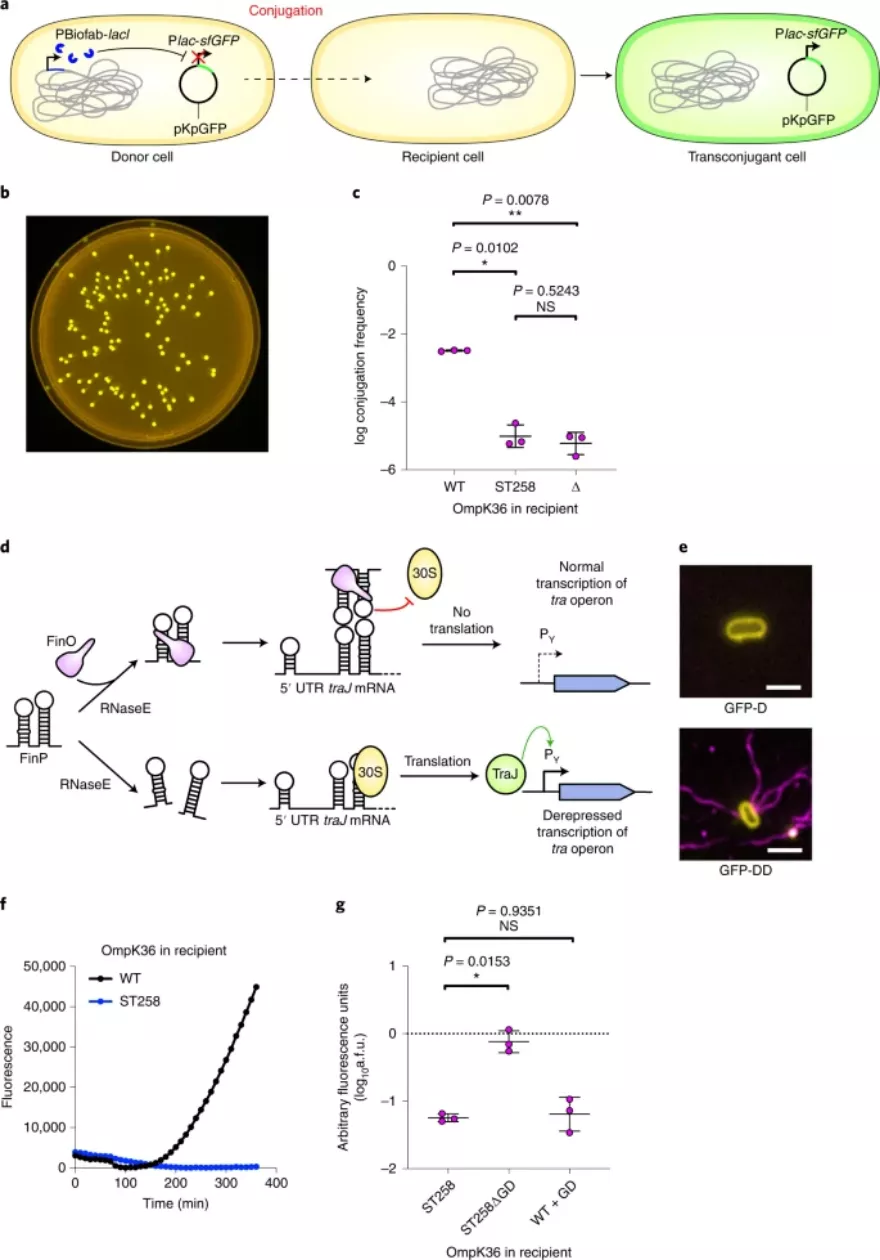According to a paper published in nature microbiology on the 13th, a team led by researchers from Imperial College London, UK, discovered new details of bacteria exchanging DNA and producing drug resistance The researchers said that these findings are key advances in understanding how bacteria mate and will enable people to predict the spread of emerging drug-resistant plasmids in high-risk bacterial pathogens.
One of the main ways for harmful bacteria to become resistant to antibiotics is to obtain DNA from other bacteria that have been resistant to antibiotics. This DNA exchange takes place through a process called "conjugation", similar to bacterial mating. In this process, two bacteria form an intimate connection, one of which transfers the DNA package to the other.
This finding is important because antibiotic resistance is making previously treatable diseases fatal. According to experts' prediction, 10million people may die of drug-resistant bacterial infections by 2050. Understanding the molecular basis of bacterial conjugation can enable researchers to develop new methods to slow down the spread of bacterial resistance.

Since the discovery of bacterial conjugation in the 1940s, people have done a lot of research on how two bacterial cells contact each other to transfer DNA. However, the mechanism by which the donor and recipient bacteria adhere closely to each other to achieve efficient DNA transfer is still unclear. Now researchers have discovered the proteins that regulate these intimate contacts.
Plasmids are DNA packets located in bacterial cells but replicated separately from the main chromosomal DNA. They carry a small number of genes that can encode certain functions, including resistance to antibiotics.
The research team found that in the process of conjugation, a protein called tran from the donor bacteria acts as a "plug", attaching itself to the unique outer membrane receptor or "socket" in the recipient bacteria. One of the four variants of tran protein expressed by plasmids shared by conjugation, each of which binds to a specific outer membrane receptor in the recipient bacteria, so that the plasmids can be effectively transferred from one cell to another.
"The spread of bacterial drug resistance is a serious problem affecting human health worldwide. We urgently need new tools to deal with it." Professor gardfrankel, chief researcher of the Life Sciences Department of Imperial College of technology and the MRC Center for Molecular Bacteriology and infection, said, "understanding and ultimately preventing the process of 'sharing' the ability of bacteria to escape antibiotics will greatly help to prevent the spread of drug resistance."
The team is continuing to study the interaction between tran protein and receptor, hoping that this work can lay a foundation for developing new methods to prevent the spread of bacterial drug resistance.